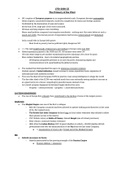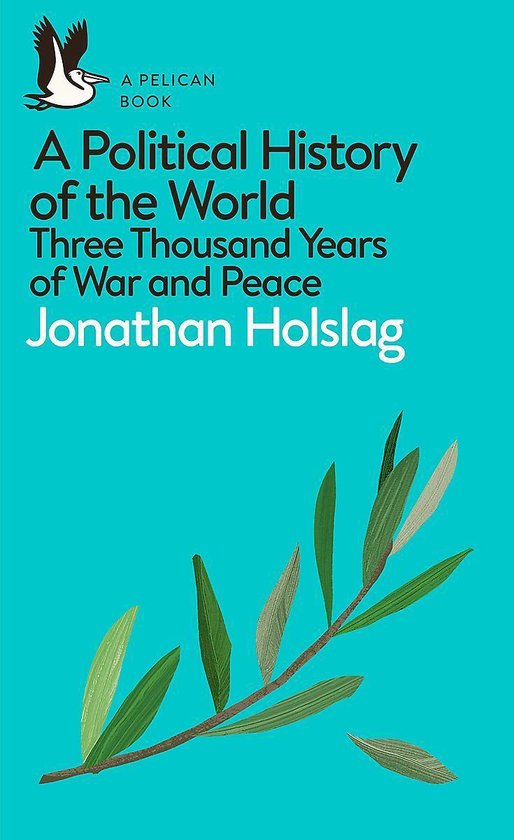1750-2000 CE
The Primacy of the West
● 18C: eruption of European progress on an unprecedented scale. Europeans became unstoppable:
- Steam engines, unmatched firepower, incited by competition for status and foreign markets
- Facilitated by the domination of seas and oceans
- By the end of 19C: large part of the world colonised.
- Ottoman and Qing empires were trembling.
- Many small polities conquered vast empires mercilessly - nothing new. But never before at such a
speed and width. The eternal pursuit of imperialism had become industrialised and globalised.
- Only a small elite in Europe held power
- Most lived in poverty, had no political rights, dangerous WC
● ==> The real breakthrough of democracy and welfare in Europe came post WW.
● Global supremacy passed to the USSR and US. US became victor after CW
- US took centre stage as yet another exceptionalist power claiming to be a force for good.
- More indirect leadership - due to its isolated geographical position.
- Developing unequalled potential in air and sea power, dominating digital and
communications tech, spearheading the global economy.
● The marked that distinguished this age is its immense economic progress
- Gradual spread of industrialization caused incomes to surge, population boom, expansion of
international trade, mobility increase.
● This was the ideal of the European ELTM in practice: man using intelligence to shape the world
- Tho the other ideal of the ELTM was realised much less: man rationally seeing another’s success as
an opportunity not a threat, competing by peaceful means instead of war.
- As a result: progress happened in between hugely destructive wars
- Progress -> destructiveness -> progress -> more destructiveness
EASTERN HEMISPHERE
● The rise of Europe first eclipsed, then contributed to the decline of some of the largest powers.
South Asia
● The Mughal Empire was one of the first to collapse.
○ Mid 18C: European countries had been allowed to operate trading posts/factories on the coast
of SA. But wanted more.
○ The British East India Company declared war on local rulers whenever they refused to allow
them greater access to the interior.
○ 1757: British victory at Battle of Plassey. Gained Bengal (one of richest provinces)
○ Next century: continued Indian resistance
○ 1858: After the Indian Mutiny (1857-8 (great rebellion in which > 100,000 deaths), British
government took over the administration of the Raj from the East India Company.
■ => inauguration of crown rule. Formal end of the Mughal Dynasty.
ME
● Safavid successors in Persia
○ Heavily pressurised by the growing strength of the Russian Empire
■ Russian defense = expansion
, 1750-2000 CE
■ Treaty of Georgievsk: forced Georgia to accept Russian protection in the place of its
dependence on Persia (1783)
■ Treaty of Turkmenchay (1828): humiliating treaty the Persian shah had to consent
to, giving Russia the last regions of the Caucasus + free access for traders to all of
Persia.
● Russians also desired to control the Black Sea region and gain access to the Med
○ Led it to support rebellions in the Ottoman Empire.
○ But when France incited an uprising in Ottoman Egypt, the Russians agreed the Treaty of
Hunkar Iskelesi with the OE (1833).
■ Russian military aid -> OE promised to close the Dardanelles to foreign warships.
● Russians continued its strategy of chipping away at the OE, whilst the OE increasingly dependent on
military and financial aid of Western European powers, who meanwhile also sought to maintain their
own BOP with Russia.
● Europe also caused chaos in the Qing Empire - still the wealthiest and most populous.
○ Qing defence = expansion
■ Under Emperor Qianlong - ruled at the Qing’s peak
○ Chinese desire to dominate and civilise other peoples was similar to the views of European
imperialists.
○ UK-China conflict: At end of 19C: production/capita was only half that of Western Europe, but
still remained the latest economy. Led the British to approach the emperor with proposals of
closer trading relations (1793).
■ British delegation was dismissed. Merchants would be expelled.
■ British addicted the Chinese to opium imported from India. -> only commodity the
Chinese did not have, for which there was much demand.
■ Emperor’s attempts to halt the destructive trade were violently resisted by the British
in the Opium Wars (1839-42, 1856-60).
● Ended with both territorial and commercial concessions being forced from
the defeated Chinese.
● ==> Turning point: long era of Chinese instability between 1839-1949 } China’s “century of humiliation”
==> As the Qing empire crumbled, Europe came to dominate the whole EH.
Europe
● Thinking
○ Rousseau: all powers should combine in a system bound by a shared religion, law, customs,
commerce, and a sort of equilibrium would prevent one state from upsetting the other.
○ Similar hopes from British thinkers: Hume, Smith.
■ Combo of commerce and BOP would bring harmony.
■ Rise of one is an opportunity, not a threat.
● France VS Britain
○ Treaty of Paris: ended the Seven Years War (1756-63) - seems as optimism would be
confirmed.
■ Had been the first true world war: two coalitions, led 01H by UK, OOH by FR, fought in
Europe, the Americas, Asia
■ Treaty promised a “Christian, universal, perpetual peace”





